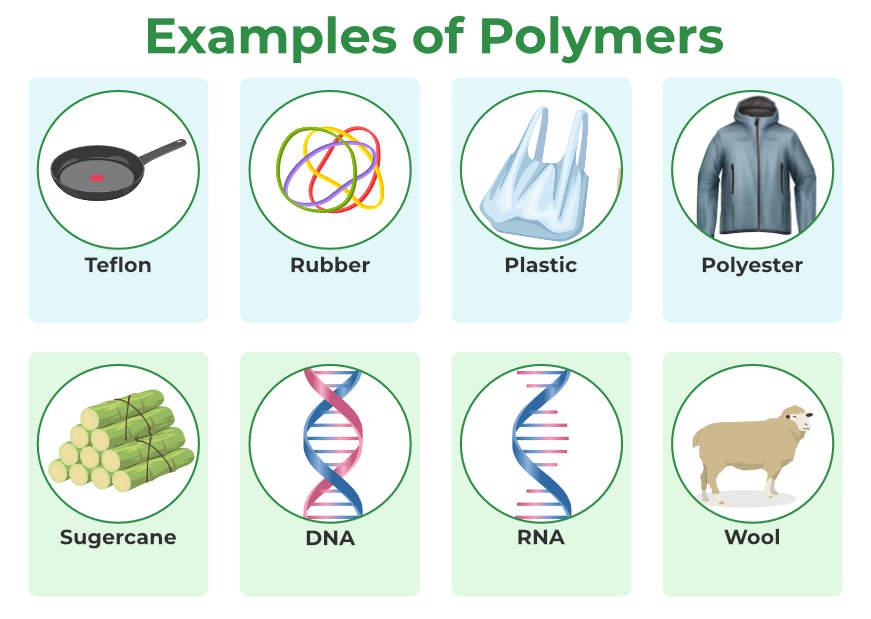Recognizing Polymers: The Scientific Research Behind Versatile Materials
Maximizing the Prospective of Polymers: Discover the Complex Advantages and Practical Makes Use Of
In the huge landscape of product science, polymers stick out as functional substances that have permeated nearly every aspect of modern-day life. Their application spans various industries, from manufacturing and building and construction to health care and modern technology. The diverse benefits and functional uses of polymers remain to evolve, providing ingenious solutions to complicated challenges. By discovering just how polymers can enhance product longevity, drive sustainability campaigns, transform health care solutions, and lead the way for future technical improvements, we can uncover a globe of possibilities waiting to be utilized.
Significance of Polymers in Modern Industries
Polymers play an essential duty in contemporary markets, serving as functional products that drive development and effectiveness throughout a wide array of fields. The electronics industry advantages from the shielding homes of polymers, important for producing circuit boards and digital tools. Their versatility, longevity, and cost-effectiveness make polymers essential in modern production processes, cultivating developments and driving progress in numerous industries worldwide.
Enhancing Product Sturdiness With Polymers
With a focus on longevity and strength, integrating sophisticated polymer modern technologies into item layout has actually come to be a foundation of improving toughness in modern-day manufacturing procedures. Polymers use a large range of homes that add to the total resilience of items. One key benefit is their resistance to corrosion, chemicals, and weathering, making them optimal for use in numerous markets where exposure to extreme conditions is usual.
Additionally, polymers can be tailored to satisfy details resilience needs, allowing producers to tailor items according to their meant use and anticipated lifespan. By incorporating polymers right into item parts, producers can boost strength and influence resistance, reducing the possibility of damage or use over time.
Furthermore, polymers are light-weight yet durable, offering resilience without including unnecessary weight to items. This characteristic is specifically valuable in industries such as aerospace and auto, where lightweight materials are vital for improving gas effectiveness and total performance.
Sustainability Innovations Through Polymer Technology
In the world of modern production and product layout, the innovative application of polymers is driving substantial developments in sustainability methods. Polymer development plays an essential function in boosting sustainability by supplying options that lower environmental influence throughout various markets.
In addition, improvements in polymer innovation have caused the development of bio-based and renewable polymers, stemmed from natural sources such as plants, that use a more sustainable option to standard petroleum-based plastics. These green polymers not just help in reducing dependence on fossil fuels yet also decrease greenhouse gas discharges during production. By integrating these ingenious polymers into making processes, companies can reduce their ecological impact and relocate in the direction of even more lasting techniques, straightening with global efforts to Read Full Article fight environment adjustment and advertise a round economy.
Polymers in Healthcare: Revolutionizing Medical Solutions

One of the vital locations where polymers are making substantial strides is in the advancement of targeted drug distribution systems. By enveloping medications within polymeric nanoparticles or micelles, researchers can boost medication stability, improve bioavailability, and enable regulated launch, bring about much more effective therapy programs with minimized adverse effects.
Additionally, polymers are instrumental in the field of regenerative medicine, where they are used to create scaffolds that resemble the extracellular matrix, giving support for cell development and cells regeneration. This technology holds immense pledge for repairing harmed organs, advertising injury recovery, and progressing personalized medication methods.
Essentially, the integration of polymers in health care is driving advancement, improving treatment efficiency, and ultimately boosting person outcomes in means previously thought unattainable.
Future Applications and Innovations in Polymer Modern Technology
Advancing at the leading edge of scientific exploration, polymer innovation continues to pave the way for groundbreaking applications and developments shaping varied industries. In addition, polymer nanocomposites are boosting the mechanical and thermal homes Source of products, leading to stronger and lighter parts in aerospace and automotive markets. Looking in advance, researchers are exploring the capacity of shape-memory polymers for applications in robotics and biomedical tools, where materials that can "remember" and revert to content their original forms provide exciting possibilities for innovation.
Verdict
